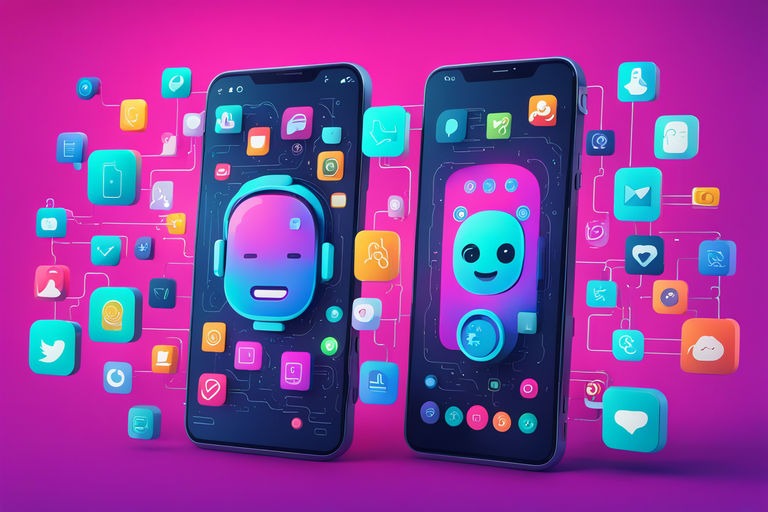Unlocking the Power of Chatbots: Elevate Mobile Apps with Intelligent Integration
Unlocking the Power of Chatbots: Elevate Mobile Apps with Intelligent Integration
In the ever-evolving landscape of mobile app development, chatbots have emerged as a powerful tool to enhance user experience and streamline operations. From providing instant customer support to offering personalized recommendations, chatbots are revolutionizing the way users interact with mobile applications. In this blog post, we will explore the world of chatbots and how their integration can elevate mobile apps to new heights.
Understanding Chatbots
Chatbots are software applications designed to simulate human conversation. They leverage natural language processing (NLP) and artificial intelligence (AI) to understand and respond to user queries in real-time. Chatbots can be categorized into two main types:
- Rule-Based Chatbots: These chatbots follow predefined rules and are best suited for simple, straightforward tasks.
- AI-Powered Chatbots: These chatbots use machine learning and NLP to understand context and provide more sophisticated responses.
Benefits of Integrating Chatbots in Mobile Apps
- Enhanced User Experience: Chatbots provide instant responses, ensuring that users receive timely support and information. This leads to increased user satisfaction and retention. For example, Exploring the Benefits of Serverless Architecture showcases how serverless architecture can improve app performance.
- 24/7 Availability: Unlike human support agents, chatbots are available round the clock. This ensures that users can access assistance at any time, which is particularly beneficial for global applications with users in different time zones.
- Personalized Interactions: By analyzing user data, chatbots can offer personalized recommendations and solutions. This level of customization enhances user engagement and drives conversion rates.
- Cost Efficiency: Implementing chatbots can significantly reduce operational costs by automating routine tasks and reducing the need for human intervention.
- Scalability: Chatbots can handle multiple queries simultaneously, making them highly scalable solutions for growing businesses.
Real-World Applications of Chatbots
- Customer Support: Chatbots can handle a wide range of customer support queries, from answering FAQs to resolving issues. This reduces the workload on human agents and ensures faster response times.
- E-Commerce: In e-commerce apps, chatbots can assist users in finding products, processing orders, and providing personalized recommendations. This not only enhances the shopping experience but also increases sales.
- Healthcare: Healthcare apps can use chatbots to provide medical advice, schedule appointments, and remind patients about medication. This improves patient care and streamlines administrative processes.
- Banking: In the banking sector, chatbots can assist with account management, transaction processing, and fraud detection. This enhances the security and efficiency of banking operations.
- Education: Educational apps can leverage chatbots to provide interactive learning experiences, answer student queries, and offer personalized study plans.
Best Practices for Chatbot Integration
- Define Clear Objectives: Before integrating a chatbot, it’s crucial to define clear objectives and understand what you aim to achieve. This could range from improving customer support to increasing sales.
- Choose the Right Technology: Depending on your requirements, choose the right technology stack for your chatbot. For simple tasks, a rule-based chatbot might suffice, while more complex interactions may require an AI-powered chatbot.
- Ensure Seamless Integration: Ensure that the chatbot integrates seamlessly with your existing mobile app infrastructure. This includes compatibility with databases, APIs, and other backend systems.
- Prioritize User Experience: The chatbot should be user-friendly and intuitive. Design conversational flows that are natural and easy to follow. Avoid overloading users with information and ensure responses are concise and relevant.
- Continuous Improvement: Regularly update and improve your chatbot based on user feedback and emerging technologies. This ensures that your chatbot remains effective and relevant.
Future Trends in Chatbot Technology
- Voice-Activated Chatbots: With the rise of voice-activated devices, integrating voice recognition capabilities into chatbots is becoming increasingly popular. This allows users to interact with chatbots through voice commands, enhancing accessibility and convenience.
- Emotionally Intelligent Chatbots: Future chatbots will be capable of recognizing and responding to user emotions. This will enable more empathetic and personalized interactions, improving user satisfaction.
- Multilingual Support: As businesses expand globally, the ability of chatbots to support multiple languages will become essential. This ensures that users from different linguistic backgrounds can access support and services.
- Integration with IoT: Chatbots will increasingly be integrated with Internet of Things (IoT) devices, enabling seamless interactions between users and smart devices.
- Advanced Analytics: Chatbots will leverage advanced analytics to gain deeper insights into user behavior and preferences. This will drive more effective personalization and decision-making.
Conclusion
Chatbots are transforming the mobile app landscape by enhancing user experiences, improving operational efficiency, and driving business growth. By integrating chatbots into your mobile apps, you can stay ahead of the competition and provide exceptional value to your users. As technology continues to evolve, the capabilities of chatbots will only expand, offering even more opportunities for innovation and improvement.
Discover more from Just-CO
Subscribe to get the latest posts sent to your email.




